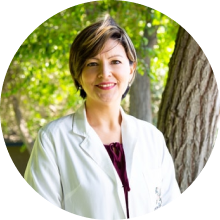
Encuentre el ensayo clínico adecuado para usted
Bienvenido a CLINAGO

¿Es un investigador o un representante de un centro clínico?
¿Por qué participar?
Cómo ayudamos
- Los ensayos clínicos son alternativas accesibles e interesantes para los pacientes que buscan soluciones innovadoras para sus problemas de salud.
- Los ensayos ofrecen un acceso privilegiado a terapias de última tecnología.
- El avance de la ciencia: En los ensayos clínicos se prueban medicamentos y se contribuye al desarrollo de fármacos importantes, así como al logro de avances médicos, y permiten encontrar nuevos tratamientos que podrían curar o mejorar la calidad de vida de pacientes como usted.

Por qué participar
¿En que consiste
participar en un ensayo?
“Sentimos que la seguridad y la salud del paciente es esencial y primordial. Estoy completamente satisfecho.”
Participante en una investigación desde 2010

Nuestros socios
Nos enorgullece colaborar y asociarnos con líderes del sector.
Tipos de ensayos Ver todos los ensayos
Ensayos destacados Ver todos los ensayos
¿Cómo podemos ayudar?
Preguntas frecuentes
Before joining a clinical study, you must first qualify for the study. All clinical studies have guidelines about who can participate to ensure it is for you. The use of inclusion/exclusion criteria is an important principle of clinical research that selects the proper participants. The factors that allow you to participate in a clinical study are called “inclusion criteria” and those that disallow you from participating are called “exclusion criteria.”
These criteria are based on such factors as age, the type and stage of disease, previous treatment history, and other medical conditions. Some research studies seek subjects with illnesses or conditions to be studied, while others need healthy subjects. It’s not personal! Inclusion and exclusion criteria are not used to reject potential participants. Instead, they are used to identify the right subjects and keep them safe.
The criteria help ensure that researchers will be able to answer the questions posed in the study.
Benefits
Clinical studies are designed and executed to allow eligible subjects to:
- Play an active role in their own healthcare
- Gain access to new research treatments before they are widely available
- Obtain expert medical care at healthcare facilities during the study
- Help others by contributing to medical research
Risks
There are risks to clinical studies, including:
- Possible unpleasant, serious or even life-threatening side effects from the experimental treatment
- Ineffectiveness: the experimental treatment may not be effective for you
- Time spent: The study may require your time and attention, due to multiple visits to the study site, frequent treatments or hospital stays, etc.
The ethical and legal codes that govern medical practice also apply to clinical studies. In addition, most clinical research is federally regulated with built-in safeguards to protect participants.
The study follows a carefully controlled protocol—a study plan that details what researchers will do in the study. As a clinical study progresses, researchers will report any unexpected events of the study to various government agencies and ethics boards, who will in turn, decide if the study should continue or not. Individuals’ names will remain confidential and will not be mentioned in these reports.
It is important that you feel informed and comfortable about clinical trials before participating. You are encouraged to ask the members of the healthcare team questions about the study and the treatment you will receive while you’re in a study. The following questions might be helpful for you to discuss with the healthcare team.
Some of the answers to these questions are also found in the informed consent document.










